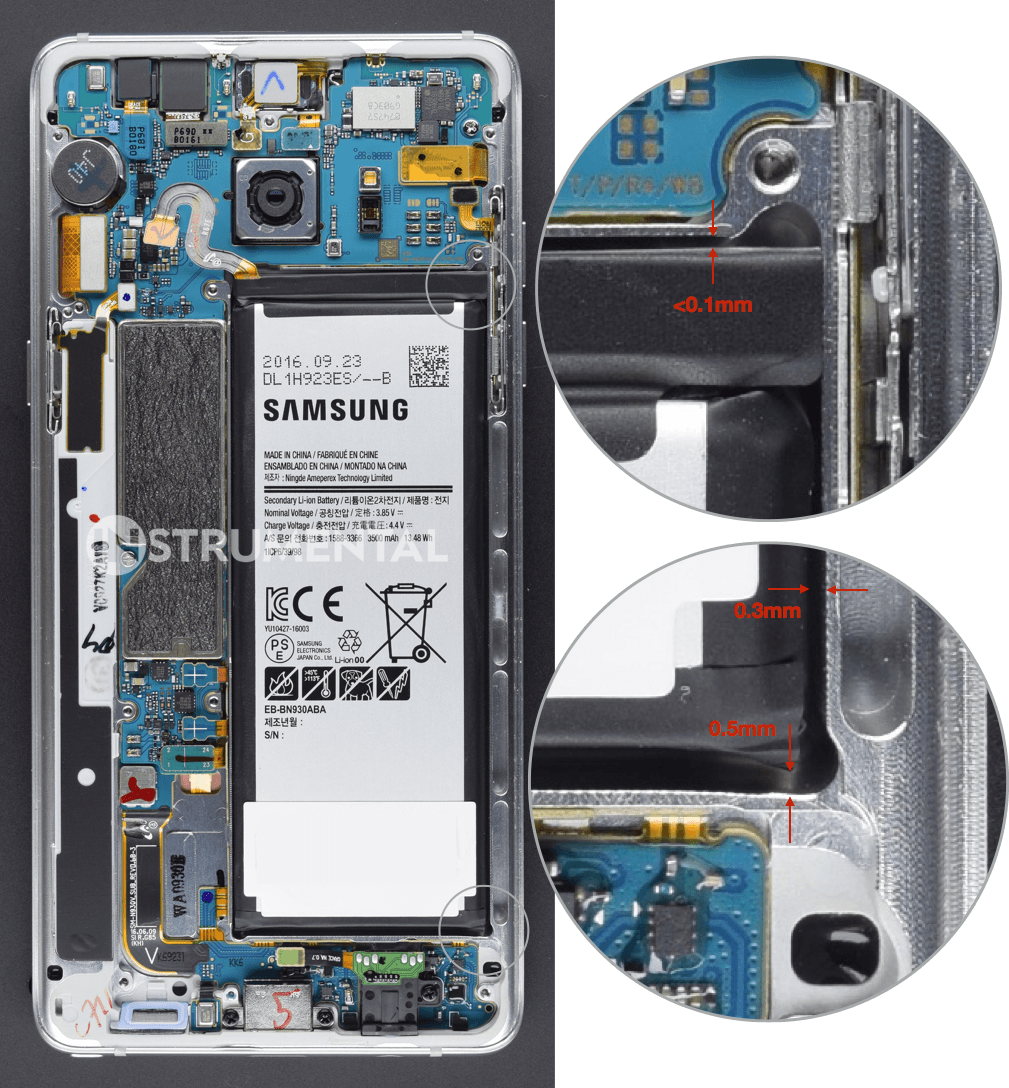Tightly packed battery may be responsible for Samsung’s Note 7 disaster

The Galaxy Note 7’s embarrassing tendency to catch fire might have been caused by Samsung’s decision to cram the battery too tightly into the smartphone’s body.

The Note 7 battery was far too tightly packed in, according to this research.
Samsung hasn’t publicly revealed the design fault responsible for the Galaxy Note 7’s exploding battery, which led to a brand-soiling $5 billion recall. But an independent analysis of the high-profile product failure found that the lack of space in the battery compartment would have caused problems if the power pack expanded or the phone was subjected to external forces.
“Samsung took a deliberate step towards danger, and their existing test infrastructure and design validation process failed them,” writes Instrumental in a damning report on the Note 7. “They shipped a dangerous product.”
[contextly_auto_sidebar]
According to Instrumental, the widest gap between the Note 7 battery and its case was just 0.5mm, while at one point it measured less than 0.1mm. A disassembly of the device furthermore showed that there was no space above the battery for it to expand into over time. In the iPhone, by comparison, the ceiling is at least 0.5mm.
While not every Note 7 ran into problems, Instrumental theorizes that failure would have been inevitable for all devices as their batteries swelled following numerous charge and discharge cycles.
Samsung Note 7’s fatal rush to market
Samsung’s handset was allegedly rushed to market due to Samsung’s confidence that the iPhone 7 would turn out to be a box office dud. The sleek smartphone generated horrific headlines, as owners suffered outrageous problems due to the Note 7’s tendency to catch fire. One Note 7 torched a family car. Another caused the evacuation of a Southwest Airlines flight after a passenger’s Note 7 emitted a thick gray-green smoke and burned a hole in the plane’s carpet.
Following this disastrous showing, the handset was eventually withdrawn from the market for good in October.
Via: Apple Insider


